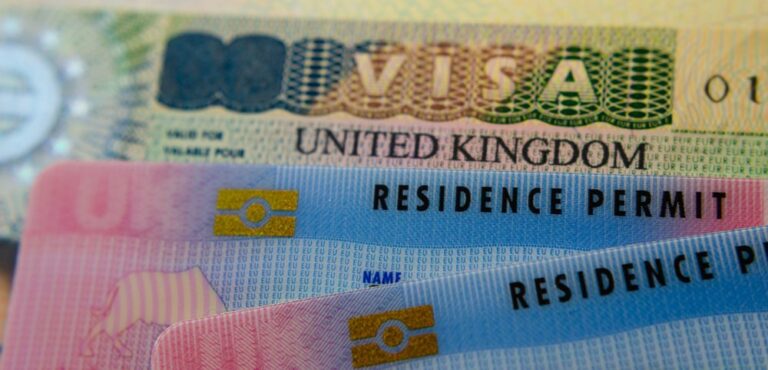TAX PLANNING BEFORE RELOCATING TO THE UK

Today, our focus is on providing an overview of UK taxation for individuals planning to relocate to the UK, who have not lived there before. The UK tax system stands out due to its varying tax rates. For instance, the top rate of income tax is 45%, applicable to dividends, salary, foreign source interest, and coupon payments. On the other hand, the top rate of capital gains tax is 28%, levied on the disposal of assets like shares and real estate.
Another significant aspect of the UK tax regime is the taxation of non-domiciled individuals. If you’re not from the UK and receiving income from outside the country, as long as you do not bring it into the UK, you don’t need to pay tax on it. This is known as the remittance basis of tax, informally referred to as “res non-dom taxation.”
However, discussions are ongoing about changes to the res non-dom taxation system. The labor party intends to abolish non-domicile taxation, and it’s likely that the Tories will introduce new laws mirroring our current non-domicile laws before the next election. These laws provide incentives for individuals from outside the UK to come here for a limited period, similar to laws in Italy, Spain, Portugal, Israel, and many other countries.
Understanding the UK tax system involves grasping a few key concepts. Firstly, tax residence: a tax resident is subject to tax on their income from sources in the UK, and also potentially on income from outside the UK that they bring into the country. Secondly, domicile, which we’ll explore in more detail later.
The UK tax year runs from the 6th of April until the 5th of April of the following calendar year. Residency is determined by how many days a person spends in the UK within a tax year, with a day being defined as any midnight spent in the UK.
Contrary to common belief, you can still be considered a UK tax resident even if you spend fewer than 183 days in the UK in a tax year. In reality, the thresholds to consider are fewer than 91, 121, and 183 days in the UK, depending on various personal circumstances.
To determine tax residency, various factors are considered, such as whether you’re employed full-time in the UK or overseas, whether you have a permanent home in the UK or overseas, and whether your family is tax resident in the UK.
Coming to the concept of domicile, it determines your particular affiliation with a country. For UK tax purposes, everyone has a domicile of origin, typically passed from father to children. You can also acquire a domicile of choice by expressing a desire to live in a country permanently or indefinitely.
The remittance basis of tax hinges upon the concept of domicile. Foreign source income and capital gains are not taxed in the UK unless they’re brought into the country. Examples include dividends received from a company resident outside the UK, foreign interest paid from a foreign debtor, and foreign capital gains arising from the disposal of foreign situated assets.
Finally, a remittance constitutes the use or receipt of income or capital gain for the benefit of a person who has earned it. Typical examples of remittances include dividends from a foreign company brought to the UK or foreign rental income used to purchase goods in the UK.
Typical examples of remittance encompass various scenarios: if dividends from a foreign company are paid into your UK bank account, they are considered remitted in the UK. Similarly, if you credit your dividends to a Swiss bank account and later use a bank card in the UK linked to this account, the amount will also be regarded as remitted. Even paying off the balance of a credit card in the UK with foreign income is considered a remittance, regardless of the card issuer’s location.
The complexity of these rules becomes evident in marital situations. If a person is married and their spouse or minor child spends any income in the UK, that income is considered remitted. For instance, if the wife pays a restaurant bill or school fees for their child in the UK, the husband is subject to tax. In case of divorce, the wife can bring money into the UK without the husband being taxed. However, if the wife pays for their minor child’s education in the UK under a separation agreement, even without the husband’s knowledge, he will still be subject to tax.
Let’s now delve into the concept of “clean capital.” This refers to income not subject to tax in the UK, including gifts, inheritances, and sales without profit like foreign property or shares. Most often, clean capital comprises income and capital gains earned before becoming a UK tax resident. Determining the exact date when a person becomes a UK resident is crucial. For example, if someone becomes a UK tax resident on the 6th of April in a particular year, their clean capital must be gathered by the 5th of April. A bank statement showing a certain sum of money in the bank account just before becoming a UK resident serves as sufficient proof of clean capital, which can be kept in the UK or elsewhere, depending on individual preferences.
Regarding deemed domicile, the rules state that if, in any 20-year period, you have been a UK tax resident for 15 years, on the 16th year of residency, you will become deemed UK domiciled and cannot use the remittance basis of taxation. This is often called the 15 out of 20 rule. In principle, it’s possible to leave the UK for a few years, return, and restart your remittance basis clock.
The seven out of nine rule allows using the remittance basis without financial penalties for the first seven tax years of your UK residence. However, starting from the eighth year, to avoid tax on foreign income, you must pay £30,000 for this privilege. On the 13th year, the fee increases to £60,000. It’s straightforward: every year, starting from the eighth year, calculate the foreign income and the corresponding tax if it were brought to the UK.
Now, let’s return to the subject of clean capital and explore business investment relief, which holds significant relevance for many clients. While clean capital is ideally meant for personal expenses in the UK, its amount is finite and limited to what you accumulated before becoming a UK resident. Consequently, financing a UK business poses a challenge. If you bring anything other than clean capital to the UK to provide a loan or subscribe to a company’s shares, you’ll be liable to pay tax on remitted income. In other words, tax must be settled before the company benefits from your loan or share subscription.
To address this, the UK has introduced Business Investment Relief, a valuable mechanism that allows you to invest funds in or subscribe for shares of a UK Trading Company. As long as the company utilizes these funds, and you don’t directly benefit from them, you won’t face limitations. For instance, imagine your friend invites you to finance their corner shop, a trading activity run by a UK company. As a shareholder or creditor, you invest in the company, and as long as the capital promotes its trade, you won’t owe any tax on it.
It’s essential to note that receiving interest or dividends from this company would be subject to tax as it’s considered UK-source income. However, when you eventually repay the loan or repurchase your shares, the initially invested amount won’t be taxed, provided you withdraw the proceeds outside of the UK. You can also invest in property companies, not just those owned by acquaintances. However, a crucial limitation exists: the relief’s purpose is to promote investment, meaning you shouldn’t benefit from your own money. If you use company resources for personal benefit, like a company car or accommodation, you need to declare and tax such benefits; otherwise, the entire investment might be linked to your personal benefit, rendering the relief inapplicable.
Moving on to inheritance tax, currently, if you’re non-domiciled, you’d only pay inheritance tax on assets located in the UK. However, if the domicile rules change and non-domicile taxation is abolished, temporary residents could find themselves liable for inheritance tax on foreign assets, in addition to UK assets.
As it stands, if you’re domiciled in the UK, you’re subject to inheritance tax on your worldwide assets. When such an individual passes away, all their property, both inside and outside the UK, will be valued, and after small exemptions, will be subject to a 40 percent tax paid out of their estate. If the estate lacks sufficient cash, the executor must sell certain assets to cover the tax liability, or your heirs will need to find the money. Conversely, if you’re domiciled outside the UK, you’d only risk liability for assets situated in the UK, while assets owned outside of the UK would be exempt from this tax.
One common method to avoid inheritance tax liability is owning UK company shares through a non-UK company registered outside the UK, qualifying as excluded property. However, for residential real estate, this planning is challenging, as your UK home will always be subject to UK inheritance tax, regardless of the structure.
Inheritance tax risk arises not only upon a person’s death but also when making gifts. If you live in the UK and inherit an asset from outside the UK, from someone not domiciled in the UK, you will not pay inheritance tax on that asset. However, if you want to gift UK property to your children or give a significant sum of money kept in a UK bank account, and you pass away, all gifts made within seven years of death are included in the calculation of your inheritance tax liability.
Lastly, comprehending double tax treaties for inheritance tax purposes is of utmost importance. These treaties aim to prevent double taxation of the same income. However, they are not intended for double non-avoidance of tax. If you’re not domiciled in the UK and utilize the remittance basis of tax, you won’t pay tax on your foreign income as long as you don’t bring it to the UK. Nevertheless, most double tax treaties concluded with the UK now do not grant benefits to individuals claiming non-dom status.
A prime example of this anti-avoidance measure is the US-UK double taxation treaty. If a person is a UK tax resident and receives dividends from U.S. sources, they can reduce the U.S. withholding tax, typically set at 30%, to 5 or 10%, and then pay the difference in tax in the UK. However, if someone claims non-domicile taxation, opting for the remittance basis, they won’t benefit from this reduction. While residing in the UK and receiving dividends or interest from the U.S., they will pay the full 30% in the U.S. This issue arises when a bank provides a W-8BEN form, which individuals claiming the remittance basis of tax cannot sign.
Certain countries, such as Malta and Canada, allow you to adjust the base cost of your assets to their current market value when you become a resident. However, the UK does not provide this option. If you bought foreign property in 2010, became tax resident in the UK in 2024, and sold your property in 2025, you’d be taxed on the increase in the property’s value from 2010 to 2025, using your historical base cost to calculate your gain.
Upon ceasing to be a UK resident, there is no strict exit tax, but some exceptions apply, such as clawbacks of holdover relief and potential capital gains tax on trade if you were trading in the UK as a sole trader or entrepreneur.
One unexpected consequence of becoming a non-UK tax resident pertains to individuals who are directors of a foreign company. If you manage and control your foreign company from the UK, there’s a risk of bringing tax residents of your foreign company into the UK, requiring registration as a UK taxpayer. Conversely, if you were a director of a UK company and cease to be a UK tax resident, the revenue may consider that your UK company is now managed and controlled from overseas. This might entail changing the residence of your UK company, potentially subjecting it to deemed liquidation and needing to pay tax on the increase in the value of its assets.
In the UK, foreign domicile individuals have the privilege of being taxed on the remittance basis, and they can choose each year whether to exercise this privilege. This choice can be made retrospectively, looking back on the past tax year. In the first seven years of UK residency, it’s typically advantageous to elect to be taxed on the remittance basis. However, once it costs £30,000 per year to use this privilege, it’s worth considering if claiming it is financially viable.
Those with no personal income or capital gains in the UK or overseas do not need to file a tax return. However, if a person is receiving gifts or financial assistance from a family member overseas, it is best to act preemptively and file a tax return to avoid any potential issues with HMRC.
One common mistake people make is underestimating the complexity of the UK tax system. For example, many believe that spending fewer than six months in the UK means they are not tax residents, which is incorrect. Additionally, people often have the misconception that anything owned by companies they own is automatically theirs, which is also not true. A company is a separate entity, and unless it pays you dividends or salary, the assets it owns do not belong to you.








